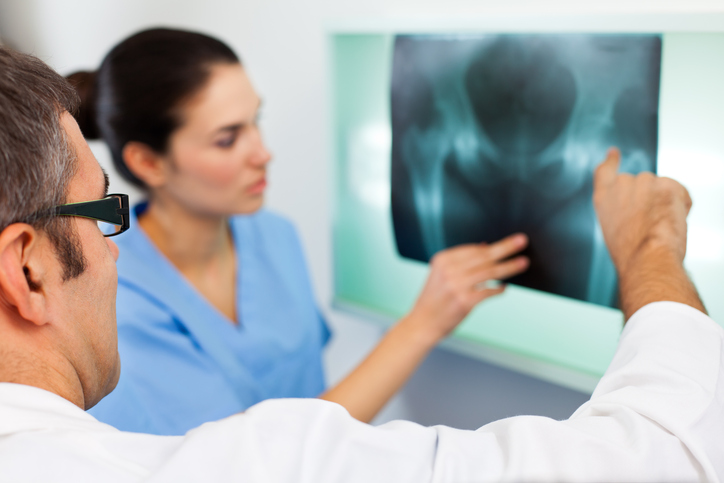Exercise two minutes a day to keep hip fractures away
/What if all you had to do to reduce your chances of having a hip fracture was to simply do a specific exercise two minutes a day? Would that motivate you taking that fraction of time to get up and move?
Maybe a fear of having a hip fracture is not one of your top health concerns – yet. But as you age, the chance of breaking a hip rises which can mean a major change in your life. Most people break their hip near the upper part of the thighbone (femur) usually near where the femur fits into the hip joint. The majority of hip fractures result from a fall. With aging, our bones naturally lose some strength making them more prone to breaks, even from a minor fall. Breaking a hip is hardly a minor event – most people with broken hips require surgery and it can take up to a year to recover.
Risk factors increasing risk of a hip fracture
Certain people are more likely to experience the inconvenience of breaking a hip:
· Being female.
· Your family history-being thin or tall or having family members who had fractures later in life.
· Not getting enough calcium and vitamin D, which you need for strong bones.
· Not being active. Weight-bearing exercise, such as walking, helps keep bones strong.
· Smoking.
· Medical conditions that cause dizziness or problems with balance, or conditions such as arthritis that can interfere with steady and safe movement.
· Taking certain medicines, such as long-term steroid medicines
New study shows you do not need to train for long lengths of time to strengthen bones
There is now a growing body of evidence that lifelong physical activity can help combat the effects of aging on our bones. If you dread having to take time to make time to exercise, no worries. It looks like from the results of a new study, that just a little bit of the right type of exercise for just a coupleof minutes a day may help.
Researchers from the United Kingdom wanted to learn more about how exercise affects bone health in a group of healthy women who were at risk for brittle bones or osteoporosis. This study looked at the quantity and quality required to make a real change in bone strength, as well as how to measure that exercise. The study used both pre- and post-menopausal women who wore accelerometers to record the intensity of their movements. The goal was to see what they could learn about the participant’s movements with very brief measurements.
The most interesting finding from this study was that women who had the most intense movement, for what amounted to just one to two minutes each day, had a reduction in risk for brittle bones that might lead to an eventual hip fracture. What type of activity was it these women did to achieve stronger, denser bones? Only one to two minutes of running for women who were pre-menopausal and slow jogging for a post-menopausal woman.
Take time for two minutes a day
The takeaway from this study is that even small, vigorous bouts of exercise can have big benefits. Knowing that we can gain strides in protecting our bones from only up to two minutes a day of weight-bearing exercise, gives all of us hope in being able to fit this into our daily lives improving our chance of avoiding a hip fracture.
It’s the small, measurable but regular movements we do from dancing to a two minute song, jumping rope, hopping in place, or running as fast as we can, that all add up to better bone health.

